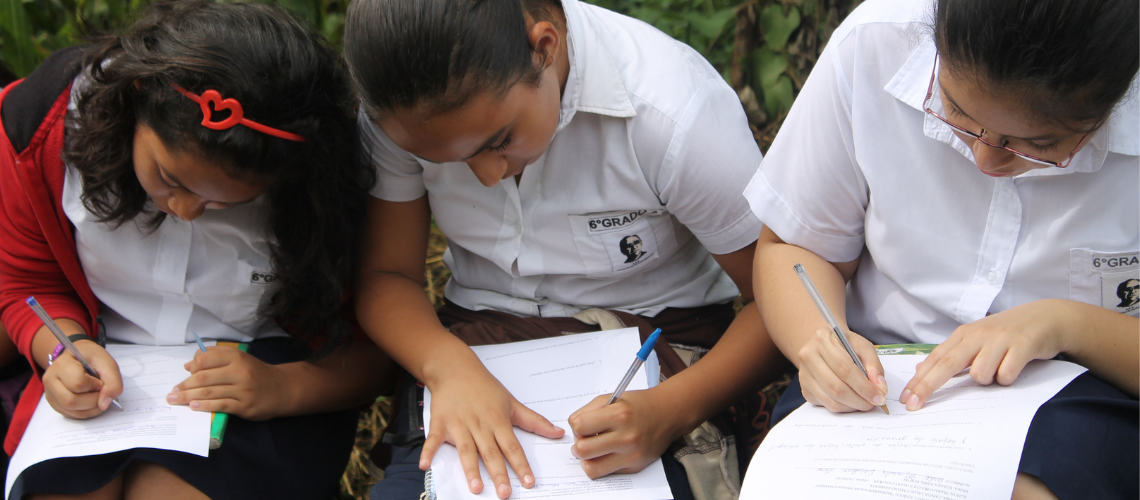 Photo: World Bank
Photo: World Bank
This crisis is central to a summit in Santiago, Chile this week that brings together education ministers and authorities and experts in finance on the challenge. Convened by UNESCO and Chile’s Ministry of Education, with the World Bank and other partners, the meeting hopes to identify successful policies, increase investments, and ensure everyone in government meets this challenge. This summit builds on the regional education event which took place in Bogota in March 2023, where delegations from 19 countries endorsed a commitment for action to ensure all children develop foundational learning to realize their full potential.
The crisis can be illustrated by new data that deepens its understanding. The Programme for International Student Assessment (PISA), implemented by the Organization for Economic Cooperation and Development (OECD), surveyed fifteen-year-old students from 14 Latin American and Caribbean (LAC) countries. The results show what adolescents know and can do in mathematics, reading, and science.
There are four big conclusions:
Firstly, 15-year-olds in most LAC countries face a deep learning crisis and this affects students from vulnerable communities the most. On average, 75 percent of students are below the basic proficiency level in mathematics and 55 percent are below in reading .
Secondly, there is a wide gap in learning outcomes between OECD and LAC students. The shortfall in mathematics is equivalent to 5 years of schooling when one compares average LAC and OECD students.
Thirdly, learning outcomes are moving in the wrong direction because there is an increase in low performance . This is particularly evident in mathematics, where compared to the 2018 PISA survey.
Fourthly, we cannot blame everything on the pandemic. The new PISA data reflects changes in performance from roughly one year before the pandemic of 2020. It might also paint too positive a picture of learning losses caused by the pandemic. The students in the 2022 PISA were 13 by the time schools closed, and they were likely more familiar with technology and more able to learn independently. We are most concerned about learning losses, among children in early childhood education ages and, for schoolchildren in grades 2 to 6. Foundational literacy skills are acquired during those grades. If recovery does not continue, we may see large learning gaps in the next PISA round.
The good news though is that several countries are acting already. Beginning during the pandemic, some changed teaching programs to emphasize foundational skills in reading and math, targeted extra help at low achievers, and rolled out more technology to help struggling students. These efforts are in line with the commitment for action endorsed by LAC countries in the Bogota event. More efforts are however needed to convert this commitment into systematic actions and policies, at all education levels.
Firstly, recover the learning losses in math for adolescent learners, including tutoring interventions, potentially using EdTech solutions.
Secondly, accelerate action to improve and strengthen outcomes in other subjects, including reading and science, to ensure the catch-up of the half of students that are lagging, especially the most vulnerable ones.
Thirdly, continue to emphasize recovery and acceleration efforts in reading and math of primary education students who have been severely affected by the COVID-19 pandemic and who would be part of the next rounds of PISA assessments. This also implies making sure children are ready for school by ensuring high-quality early childhood education for all, and teachers are empowered and supported to help students learn.
Importantly, schools cannot face the challenge of the learning crisis alone. All actors in society—multilateral organizations, governments, the private sector, civil society, and schools—must recognize the urgency of the learning crisis and take action together. For example, under the “Connected: Digital transformation to accelerate learning” initiative, the Inter-American Development Bank and the World Bank in October announced they are investing USD 512 million in the digital transformation of education, benefitting 3.5 million students, with plans to invest another USD 400 million. Together, our institutions plan to pursue a comprehensive approach to the digital transformation of schools, with access to connectivity, devices, educational platforms, and digital skills development.
The LAC region faces huge challenges with its crisis in education. But this crisis can be overcome by increasing the impact and scale of how we address it. We owe this to our children today and to future generations. Let’s work together to give them a brighter future.
Sign up to receive a weekly article
Related articles:


Join the Conversation